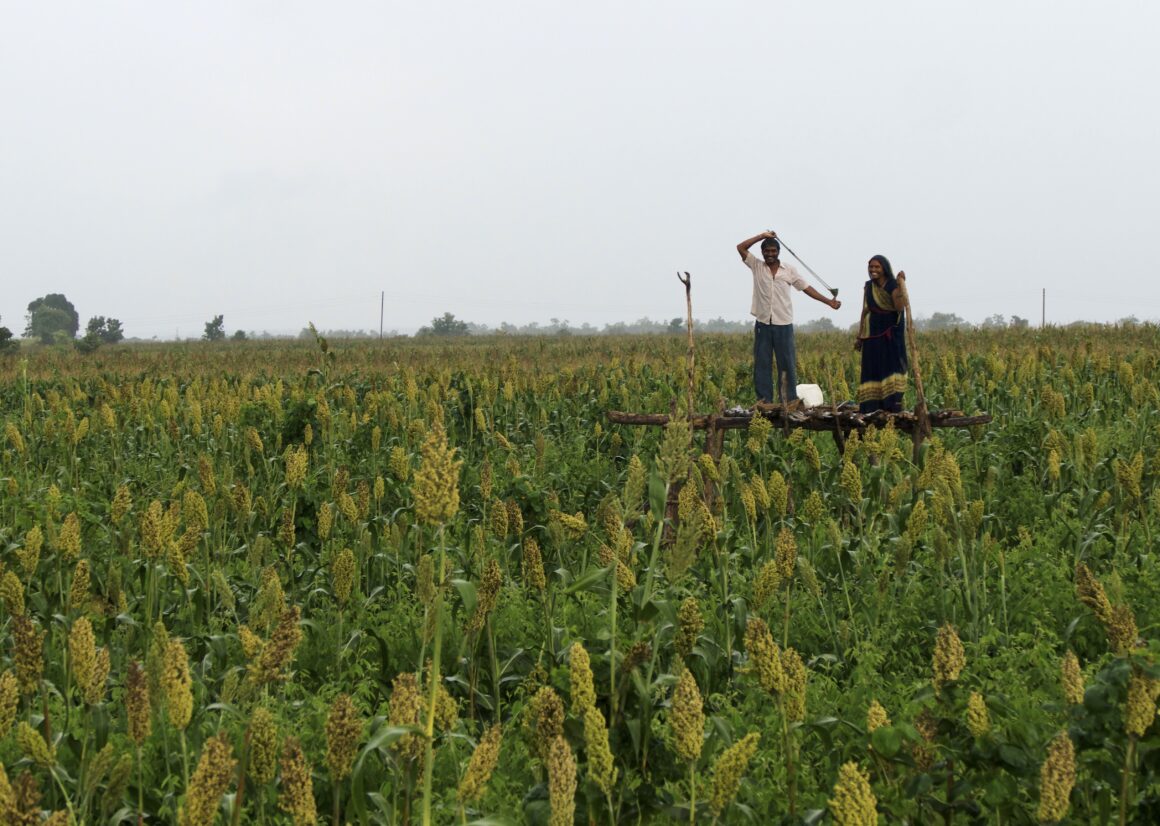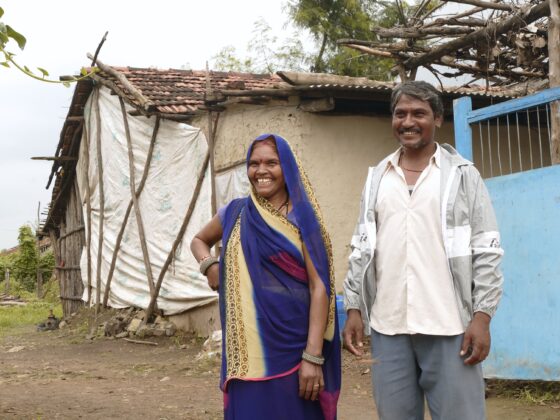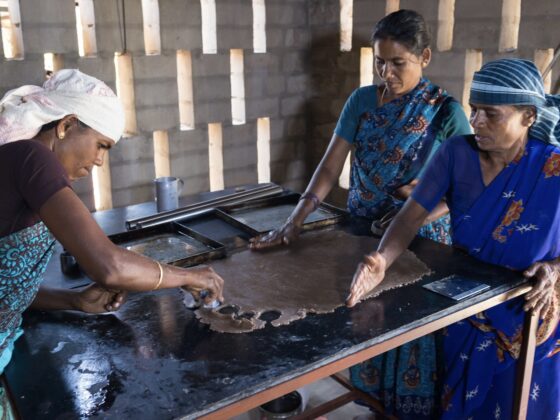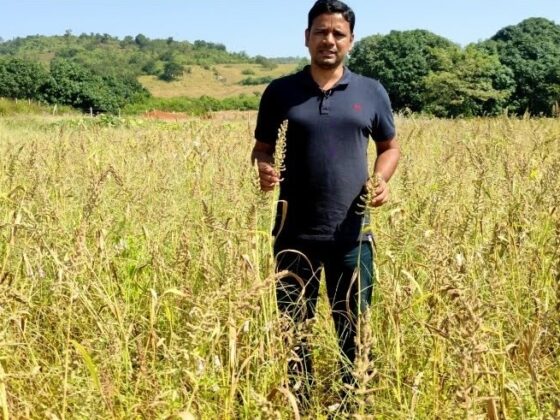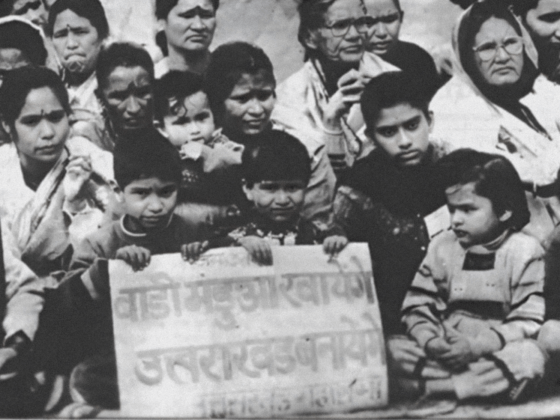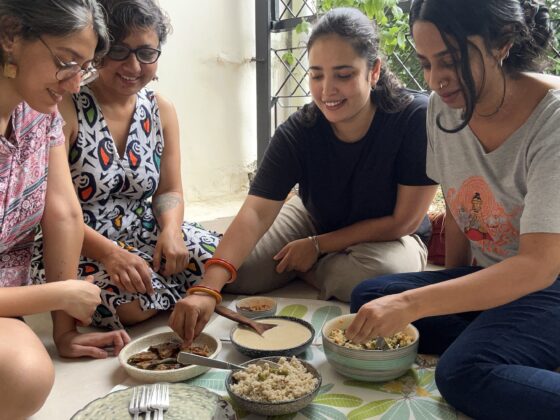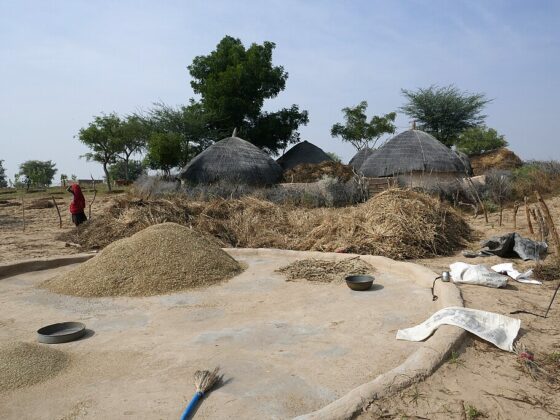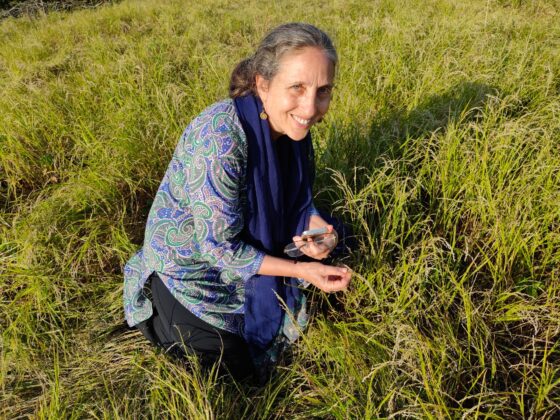Elubai and Govind Bhaiyya—a farmer couple from Devasiya village in Madhya Pradesh—talk to Laxminarayan Devda about preparing for the Kharif sowing season, why they practise chemical-free farming, and how more farmers in the region can be encouraged to plant jowar.
Elubai—fondly known as Elu Didi—is in a great hurry since morning. She is extracting organic manure from the concrete NADEP pit behind her house and filtering it through a sieve. Her husband, Govind Bhaiyya, is busy readying the bullock-cart. Didi fills the manure into a bamboo basket. She then promptly ties the seeds of jowar (sorghum), maize, red toor, sesame, moong, chavla (cowpea/lobia), urad, ladyfinger, dangri (wild melon), kakdi (American cucumber), red pumpkin, ash gourd, ballar (flat beans), and bottle gourd in a parcel. She gets into the cart quickly with the parcel, with Bhaiyya driving the cart towards the field.
The NADEP method of composting comprises the construction of a permanent pit for farm organic matter, and was first created by Narayan Deotao Pandharipande. It gets its name from combining the letters of his name.
Before sowing the jowar seeds, Didi mixes them with the organic manure in equal proportions. Doing so ensures that the plants flourish and that there is no overgrowth. Since the manure falls in the soil along with the seeds, the plants begin to receive nourishment from the roots itself, thus making them healthy and strong.
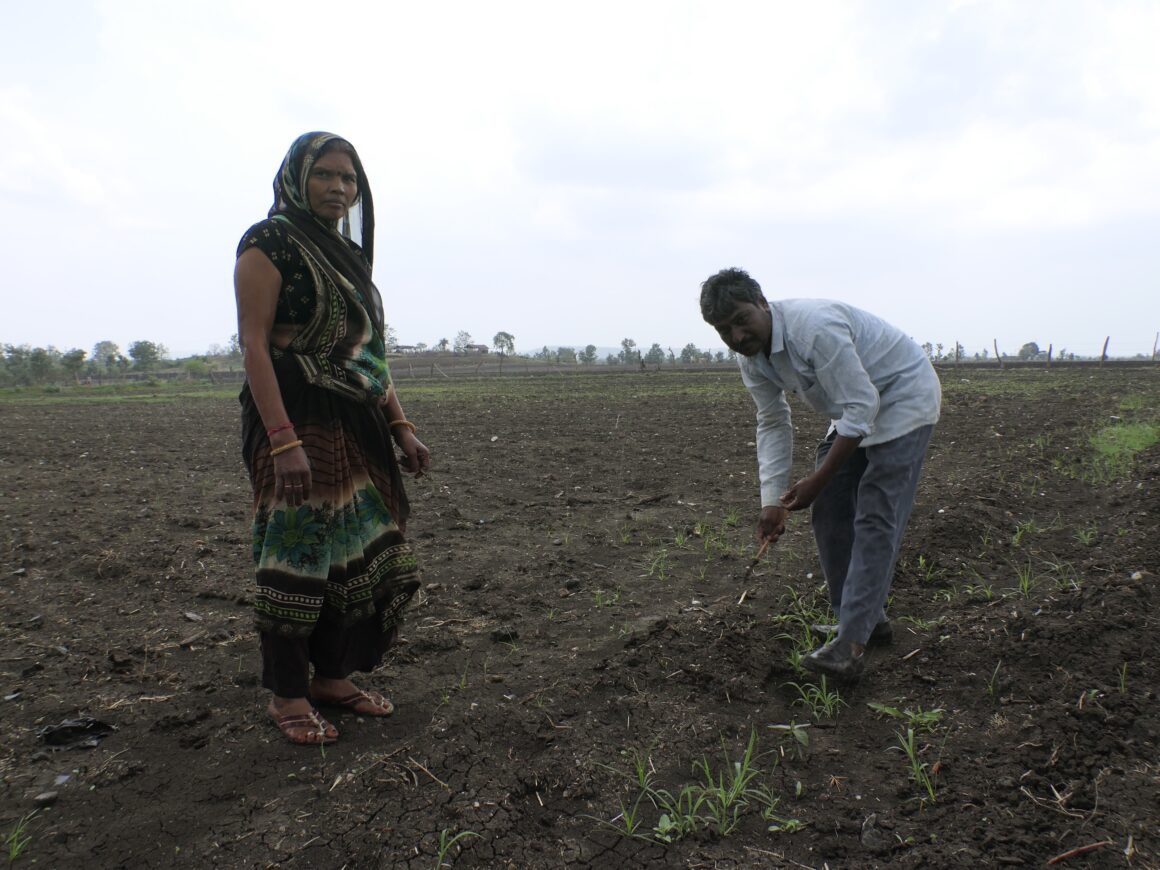
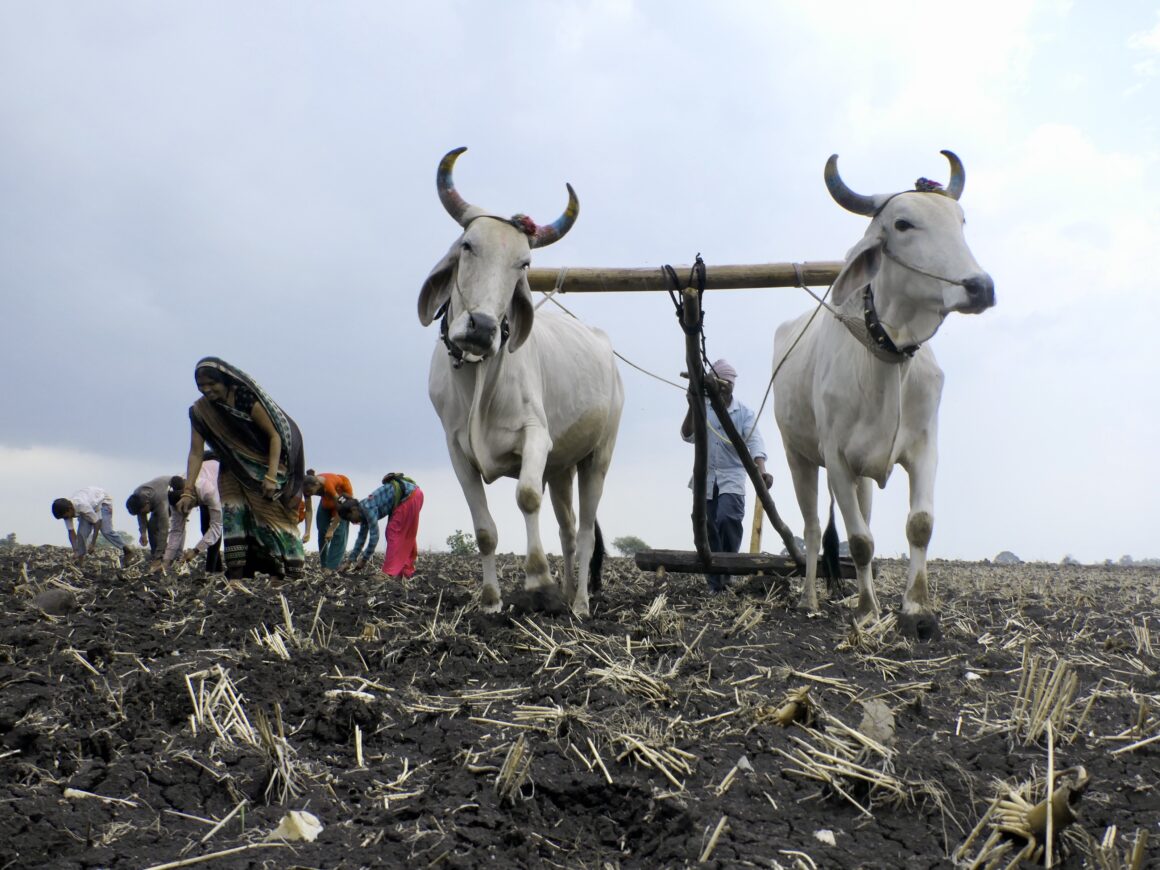
Didi considers it auspicious to always sow jowar seeds in the Kharif season, even if there are only five rows. She believes that, “…there is less expenditure involved in the cultivation of jowar. It requires neither chemical fertilisers nor pesticides. Yes, chasing away the birds can be somewhat tedious. If you weather this trouble for a month, then know that jowar mata will happily be ripe. If the government buys jowar at a good rate, then the farmers will start sowing it again…”
Didi considers it auspicious to always sow jowar seeds in the Kharif season, even if there are only five rows.
To ensure that the family does not have to worry about food throughout the year, Didi first sows grains, pulses, and vegetables in her 13 bighas (a unit of land measurement) of land and only then proceeds to sow other crops. Bhaiyya tells us, “Pitaji used to get scared at the mere mention of urea fertiliser. Some children from the village once ate it, mistaking it for sugar, and a goat had died after eating it. Even though it is available free of cost in the village, the farmers are afraid to use it.”
Several changes have occurred in the village over the last 20 years. “Influenced by the prominent farmers around us, and by the greed for a greater yield, we had started buying hybrid seeds, chemical fertilisers, and pesticides. The production seemed fine for a few years but in the last eight-ten years, new diseases and viruses have cropped up. No matter what the produce, it would all go into meeting expenses. We could not even cover the cost for some years. We tried to repay a year’s loan in the next, and yet were unable to get out of debt,” adds Bhaiyya.
Elu Didi says, “Blessed be the group members who formed the women’s savings group in our village. We receive loans from the group at low interest rates and in easy installments.”
For the past five years, Didi has been a member of the Genda Pragati Samooh constituted by the Samaj Pragati Sahyog Sansthan. Through their meetings, the organisation has been spreading awareness about the benefits of farming without chemical fertilisers. They are training the women in land preparation, seed germination, seed treatment, preparation of organic manure, and organic medicines for pest control.
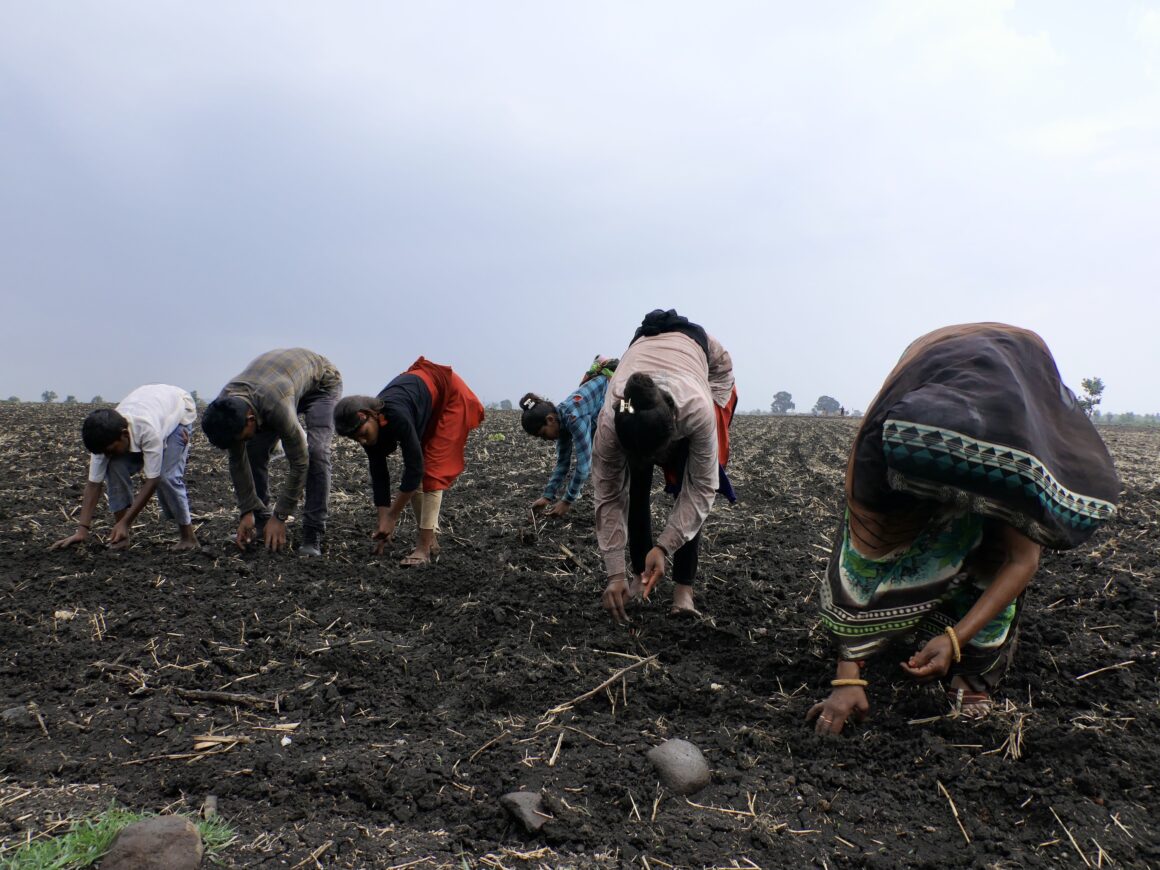
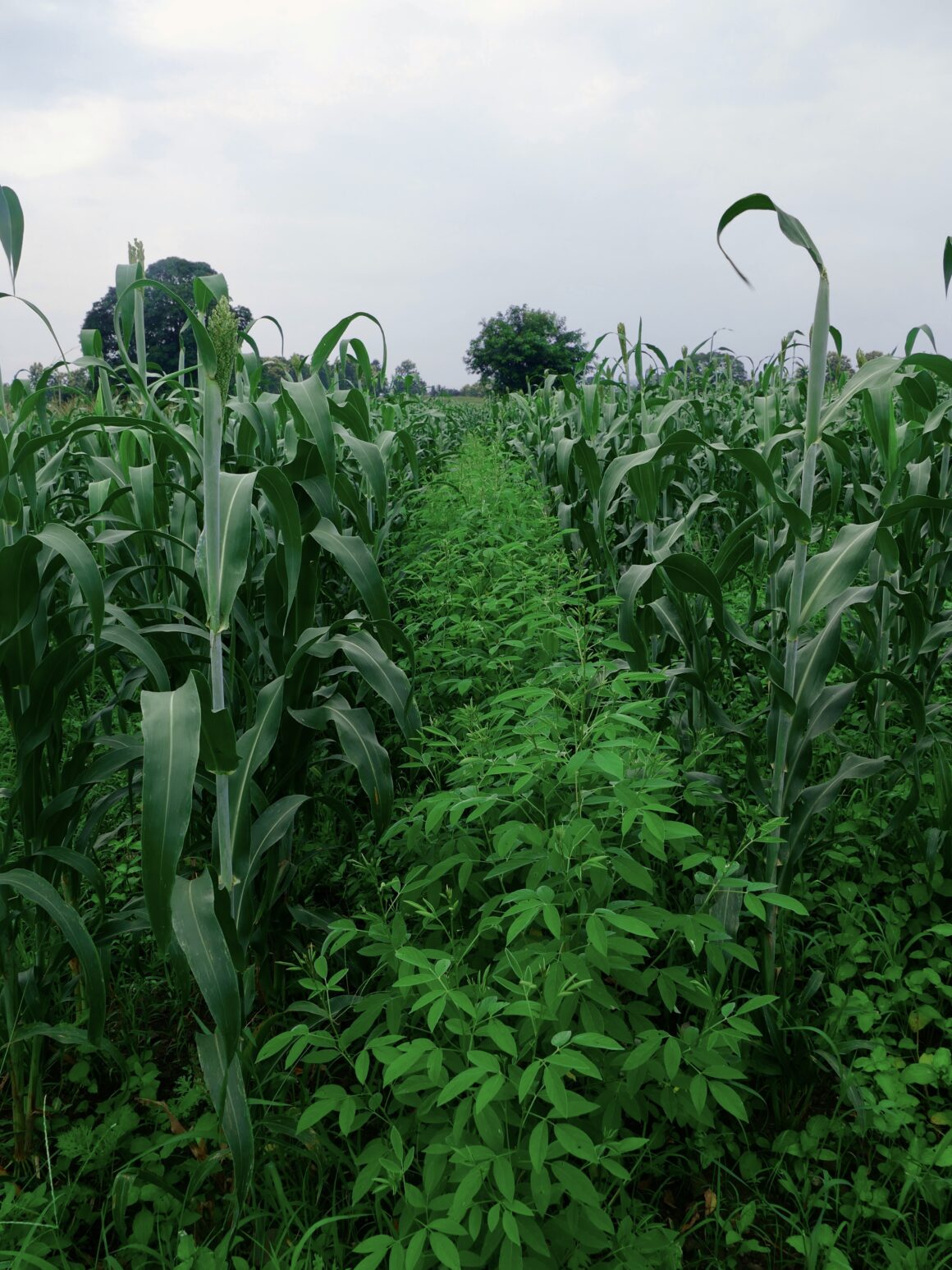
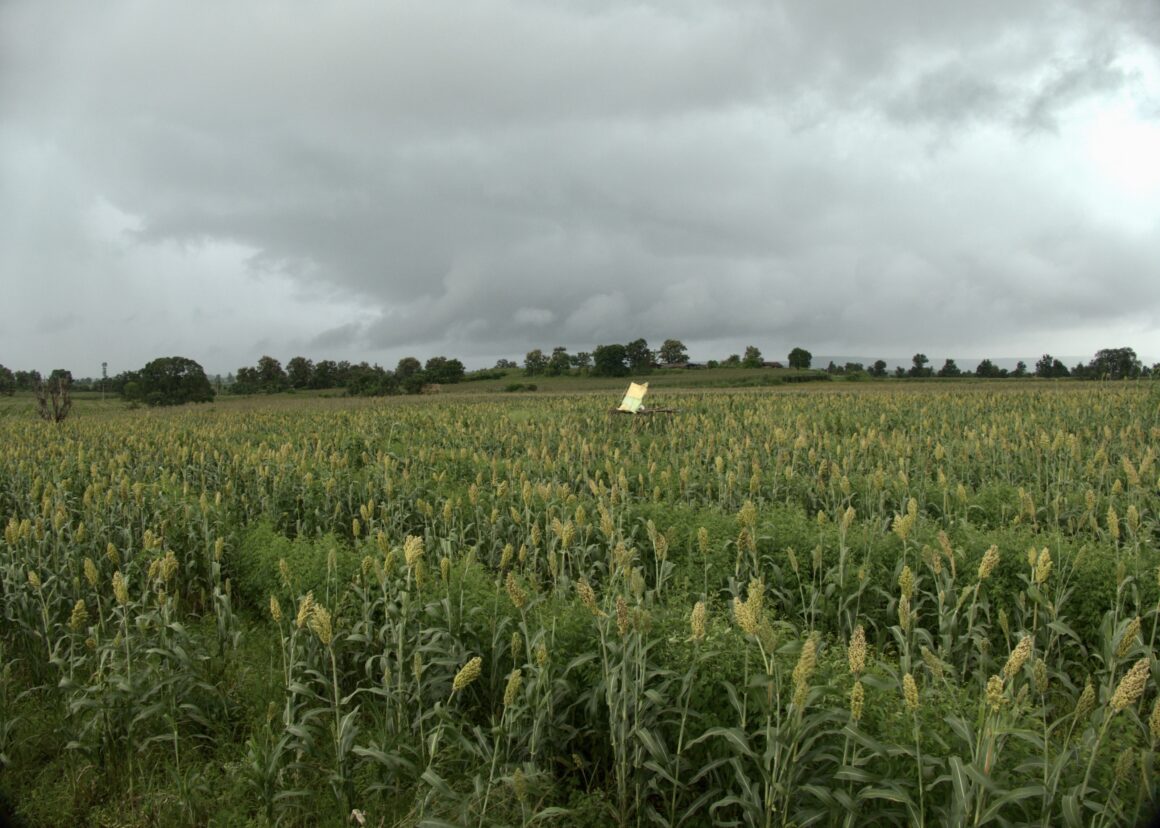
Stages of growing jowar on Elubai and Govind Bhaiyya’s farm. It took some convincing to get them to shift to chemical-free farming, but now, they wouldn’t have it any other way. Since then, the couple saves rupees 1.5 lakh annually from both their harvests.
For a year, Didi-Bhaiyya did not believe an iota of what was imparted to them because they had gotten used to chemical fertilisers and pesticides. However, the members of the organisation would constantly explain to them that not only was chemical farming expensive but also caused diseases like cancer. To teach them about organic farming, they were taken on tours to nearby places in the region. They were also shown films from the Samaj Pragati Sahayog’s Community Media Wing.
For a year, Didi-Bhaiyya did not believe an iota of what was imparted to them because they had gotten used to chemical fertilisers and pesticides.
“We no longer buy chemical pesticides from the market since we are concerned about the future of our land and children,” shares Elu Didi. She tries growing the seeds 15 days before sowing. If a seed is bad, she can sow another well in time. Treating seeds while sowing now comes naturally to her. To prevent attacks from pests, she uses an organic medicine known as Paanch Patti (five leaves). If the pests remain uncontrolled, she sprinkles a self-made concoction comprising garlic, onion, ginger, and green chilli chutney. Its acidic composition drives caterpillars away from the crops. Govind Bhaiyya tells us that, “…its smell does not dissolve even after two days of spraying it. At first, I was unable to eat properly for a day or two after it was sprayed. But now, I have gotten used to it. This is hard work, certainly, but it saves money.”
They have a concrete NADEP and a bhu-NADEP (a composting tank made out of mud) to prepare organic manure. They are able to extract five-six trolleys of manure from them twice a year. Elu Didi and Govind Bhaiyya are of the opinion that this quantity of manure is not enough to cover the entire land. If there are three-four more NADEPs, it would then be possible to cover the entire expanse. If no chemical fertilisers and pesticides are bought from the market, they will not only save money but will also keep farming processes healthy and the future of the next generation secure.
Laxminarayan Devda is a farmer-filmmaker who lives in Pandutalab, Madhya Pradesh. He has been associated with the Samaj Pragati Sahayog’s Community Media Wing since 2005, directing several films for the organisation.
Samaj Pragati Sahayog (SPS) is a grassroots organisation that works on water and livelihood security across 72 of India’s most backward districts, mainly in the central Indian Adivasi belt.
This feature was originally published in Hindi by the National Coalition for Natural Farming. It has been translated by Sonakshi Srivastava.
Sonakshi Srivastava is a senior writing tutor at Ashoka University. She is also the Translations Editor for The Usawa Literary Review. Her writing has been supported by the 2024 ASLE Translation Grant, South Asia Speaks Fellowship, and Martha’s Vineyard Institute of Creative Writing.
You can read the Hindi version here.
The National Coalition for Natural Farming works to build partnerships, including government, civil society organisations, and farmers’ groups, to attain a smooth and effective transition towards agro-ecology. You can find their interviews with champion farmers here.

This article is part of the Millet Revival Project 2023, The Locavore’s modest attempt to demystify cooking with millets, and learn the impact that it has on our ecology. This initiative, in association with Rainmatter Foundation, aims to facilitate the gradual incorporation of millets into our diets, as well as create a space for meaningful conversation and engagement so that we can tap into the resilience of millets while also rediscovering its taste.

Rainmatter Foundation is a non-profit organisation that supports organisations and projects for climate action, a healthier environment, and livelihoods associated with them. The foundation and The Locavore have co-created this Millet Revival Project for a millet-climate outreach campaign for urban consumers. To learn more about the foundation and the other organisations they support, click here.
